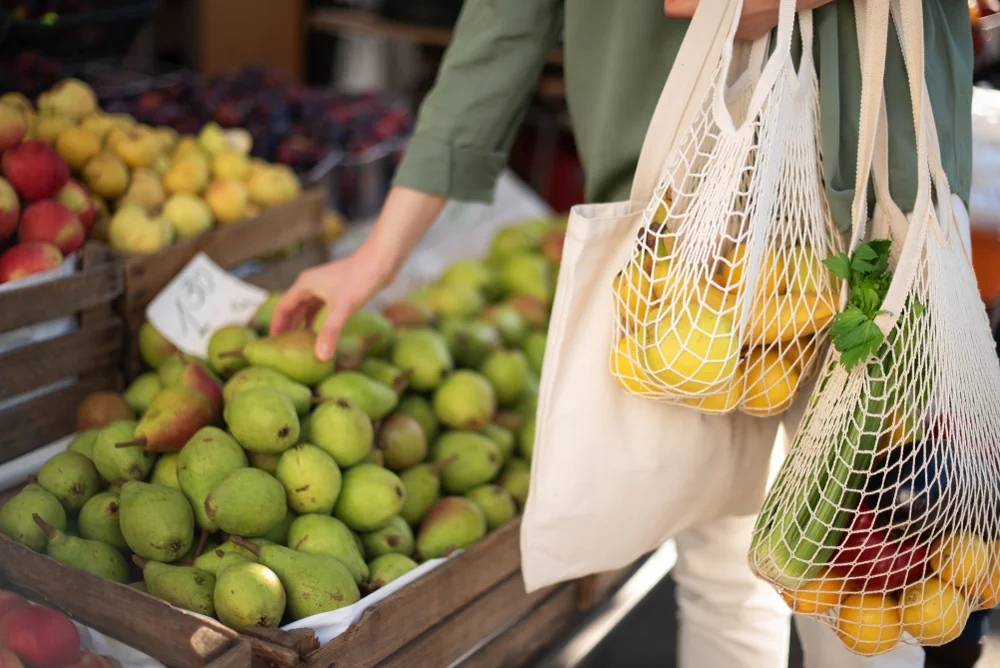By Dr Sarah Lantz
“But I can’t afford to buy natural/organic/local produce.” I hear you say.
Consider the Australian Bureau of Statistics (ABS) data on Australia’s household spending for a moment. What’s interesting in this report is that it is not every day, foundational staple foods that are breaking household food budgets. Actual fruit and vegetables are a considerably small proportion of the family budget (and getting smaller). Australians spend only 17% of their expenditure on food and non-alcoholic beverages ($204), so as a per cent of household spending, we spend less (nearly 4% less) on food than we did in 1984. On top of that, the average Australian household spends more on junk food than fruit and vegetables; more on fast food and takeaway than fruit and vegetables; more on alcohol than fruit and vegetables. Households spent an average of only $13.70 per week on vegetables and $9.60 a week on fresh fruit, compared with $30.50 on takeaway and fast food, and $11.77 on confectionary. Moreover, alcohol and tobacco combined account for nearly twice the spending on fruit and vegetables. So, it’s certainly not fruits and vegetables that are breaking the family budget.
According to the 2021 Australian Organic Market Report1, more and more households are turning to organics. Nine million Australian households purchased organic in 2020, with 37% of these shoppers increasing their household food allocation to organic. 13% of households said they spend 50% or more of their food budget on organics with staple grocery foods as the main entry point for organic shoppers (which accounts for over 90% of organic sales).
As for the cost of organic food, yes, organics can often be more expensive and this comes primarily down to the fact that shoppers are actually paying for the real cost of producing real food that is better for the environment, better for animal welfare and a far less chemical burden on the body. Yet, purchasing organic food is not always more expensive.
Here are some tips to get more bang for your buck when buying organically:
Buy in season: When fruits, vegetables and herbs are in season, they’re usually more abundantly available and therefore cheaper. There’s a reason why root vegetables, hearty leafy greens, and citrus are in season during the winter months and salad greens come into their crowning glory in the summer months. They are exactly what our body nutritionally needs at that particular time of the year. Foods grown and consumed during their appropriate seasons are more nutritionally dense, gaining benefit from a broader cross-section of phytochemicals and nutrients, and generally have a better flavour.
Visit your local farmers’ markets or food co-op: Buying directly from the producer (or as close to as possible) cuts out the middle person. Farmers’ markets are a great source of fresh and local produce, help to reduce food miles, and can be a wonderfully inspiring and educational experience for the whole family – connecting the kids to where their food comes from and inspiring them to help in the kitchen.
Buy in bulk: Taking a bag or container to purchase bulk dried goods such as nuts, quinoa, oats, legumes and seeds can save you truckloads of cash, and reduce unnecessary packaging. Teaming up with a friend or neighbour to buy even larger volumes can help to keep costs to a minimum.
Freeze and reuse: Buying (aka stockpiling) organic mangoes, berries, bananas and even some greens when ripe and in season, and then freezing for later use in smoothies/jams/ferments/casseroles can save loads of cash down the track, with minimal loss to phytochemical ingredients, minerals and fibre.
Grow your own: You don’t need a garden and it takes little effort to grow a few pots of your favourite herbs and vegetables, and it’s so rewarding. You can grow them anywhere, on windowsills, on the porch, or on the driveway. Start with herbs as they can be so expensive to buy and take up little room. Try up-cycling your empty egg boxes into planters for seedlings and using old bean cans and milk bottles for plant pots.
Cook at home: Home-cooked (and batch cooking) real ingredient meals can actually help families save money and, at the same time, help safeguard our bodies – controlling not only what goes in our food, but what stays out. This will also inevitably save money in the long term on trips to the doctors and hospital.
1Data extracted from the Australian Organic Market Report 2021, published by Australian Organic Limited in collaboration with the University of Melbourne and research partners Euromonitor International, Mobium Group and NielsenIQ.
By:
Dr Sarah Lantz (PhD)
Buchi Brew Co. & Sacred Women’s Way


